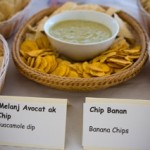
Sister Cities Essex Haiti held its first fundraiser, Have a Heart for Haiti, on Friday, October 22, 2010, on the grounds of the Connecticut River Museum in Essex, Connecticut. Over 250 people came to support Hospital Albert Schweitzer and the first Sister Cities Essex Haiti project: the establishment of a library in Deschapelles, Haiti where the Hospital is located.
Guests had the opportunity to enjoy delicious Haitian food prepared by Hedy Watrous of the Whistle Stop Café, Deep River, Ct. Volunteers from the Valley Regional High School Interact Club (affiliated with the Rotary Clubs of Chester, Deep River and Essex) volunteered to serve the food, as did Girl Scout Troop 62041 from John Winthrop Middle School.

Haitian music was provided by DJ Holly Nicolas, a Haitian who now resides in Middletown. Bob Lamothe, a member of the Sister Cities Essex Haiti Board, also from Haiti who now teaches English at Norwalk Community College as well Haitian Kreyol, provided basic dance lessons for the Merengue, Haiti’s national dance.

Those in attendance were able to purchase Haitian metal art work as well as to make donations toward the purchase of needed items for the library: books in Kreyol published in both Haiti and Florida; tables to be hand crafted by woodworkers who reside in Deschapelles; chairs purchased from local “marchands”; and “rays of light” to illuminate the library.
42 individuals volunteered to make this wonderful evening a demonstration that there are truly “sisters and brothers” here in Essex who care about Hospital Albert Schweitzer and the people of Deschapelles.
Special thanks to our corporate sponsors, Tower Labs, Essex Savings Bank and the Chirico Group for making this evening possible. Thanks to all for making this evening such a success and giving us the ability to send needed funds to Hospital Albert Scheweitzer and to provide us with the resources to establish a library in Deschapelles.
Sharing Haitian Recipes from the Fundraiser
Please enjoy the following recipes that were used at the October 22, 2010 Have a Heart for Haiti fundraiser for Hospital Albert Schweitzer and the Deschapelles Library Project. Many thanks to Hedy Watrous of Whistlestop Café, Deep River, Connecticut who provided the delicious food for our fundraiser. Visit them at http://www.the-whistle-stop-cafe.com/
Soup Jumeau
Soup Jumeau, or pumpkin soup, is a traditional soup in Haiti, especially on New Year’s day. Many variations exisit. The basic recipe follows:
Cut a pound of beef into small pieces into a pot of cold water and let it simmer until the meat is tender. Add water and ½ pound of vegetables cut in small pieces: carrots, celery, cabbage, plus ½ pound of pumpkin. Spice it with salt, pepper, bouquet garni, one bouillion cube and continue cooking until the vegetables are soft. Puree the pumpkin and vegetables, return to the soup. You can adapt many variations, without beef, more pumpkin, etc. You can also add cooked vermicelli or macaroni.
Hedy’s adaptation:
Roast 1 med. pumpkin with 6 large sweet potatoes at 400 for approx. 40 minutes. Cool then peel and set aside. Finely chop 2 large white onions. Add: 6 stalks of celery, 1/2 cup ginger, 1/3 cup garlic, 4 large carrots shredded, 4 TBS butter, 2 Qts. heavy cream (light cream is Ok if you prefer a lighter soup) and 2 Qt Chicken OR Vegetable stock.Brown onions in butter. Add garlic till translucent then in order celery, carrots, ginger and cream. Simmer for about 15 minutes to reduce the cream. Mash potatoes and pumpkin. Add to Bisque until it reaches the desired thickness. YUM!!!! Keep warm and the soup will continue to thicken. Enjoy! Hedy
Pwa ak Diriz–Pwa ak diriz or rice and beans are a staple of the Haitian diet.
Soak a cup of red beans or black beans in water for an hour. Then begin to cook the beans in 10 cups of water for approximately an hour and a half. Add salt and pepper. Remove the beans, and save the cooking water. In a casserole, melt a bit of lard (or butter) with spices: garlic, thyme and green pepper, finely minced Add 3 spoons of oil and then the beans and then the cooling water. Bring to a boil and add 2 cups of rice. Cook for 30 minutes. You may wish to add a bit of coconut milk to add flavor.
Pwa ak Diriz ak Dochon–Add shredded pork to the rice and beans.
Riz Djon Djon

For this recipe you will need djon djon mushrooms, dried black mushrooms which grow in Haiti but which are hard to find in the US.
Soak a pound of djon-djon mushrooms in an equivalent amount of hot water for 15 minutes. Remove the mushrooms, and press using two bowls, one inside the other, to extract the rest of the juice. Cook minced garlic in oil. Add the mushroom water, being careful not to pour the small bits. Bring it to a boil and add a pound of rice. Add thyme and parsley and cook for about 30 minutes. When the rice is cooked, you could add the tops of the mushrooms.
Pikliz-Pikliz is a spicy sauce that can be served with many dishes, especially grilled meats.
Cut into thin strips or shred a white cabbage, carrots, onions, shallots and a hot pepper of your choice as well as red and green peppers. Add a bit of garlic, oil, and three or four grains of pepper and the juice of 2 limes. Put all the ingredients in layers of color in a covered dish or toss to mix thoroughly. Cover tightly and allow to blend in a cool place for at least 6 hours. Remove and discard the chilie pieces. Serve with grilled or fried meat. Serve avocados on the side.
Poulet Roti en Brochet–Poulet Roti en brochet is merely chicken pieces cooked and put on a skewer. Chicken is a staple in Haitians diet when they have meat.
Ecrivisse ak sòs Ti Malice-Shrimp with Ti Malice Sauce.
Sauce Ti Malice comes from a tale of Bouqui, who is lazy, and always comes to the house of Malice to eat. Malice became tired of Bouqui’s constant arrival at meal time so he created a sauce that would be so hot that it would cause Bouqui to lose this habit. For the October 22 Have a Heart for Haiti fundraiser, we put this sauce over lightly cooked shrimp and let it sit for quite some time almost like ceviche. There are two recipes available from two different sources.
Recipe 1
Place three minced shallots in vinegar, lemon juice or orange juice. Heat the sauce in a casserole with a bit of water or bouillion and a bit of oil. Add salt and garlic. Add chilis of your choice. Heat on a warm flame, add lemon, parsley and green pepper.
Recipe 2
Put 1/4 cup finely sliced shallots. ½ tbs chopped parsley, ½ tsp black pepper, ¼ tsp yellow mustard in a sauce boat. Heat 3 Tbs oil in a heavy 2 quart saucepan. Saute 3 crushed garlic cloves for 1 to 2 minutes. Add ½ cup finely sliced onion, 1 Tbsp chopped chives or 1 minced scallion, and chili of your choice. Saute for about 4 minutes. Add 1.5 cups boiled water 1.5 tbsp apple cider vinegar. 1.5 tbsp lime juice and ½ tsp salt. Boil for 10 minutes. Strain the sauce, pressing hard on residue. Discard residue. Reduce slightly over medium heat for about one minute. Pour boiling sauce on spice and herbs in the sauceboat and serve immediately.
Chip Banane

Banana chips are greatly enjoyed in Haiti. Slice plantains very thinly and cook in hot oil. Add a bit of salt when you remove them from the oil. They are a lot of work. Stop and Shop in Old Saybrook CT sells them already made. Vendors in certain areas of Port au Prince sell this version of fried plantain, but cut into long strips, called Papitas, on the street. I have not seen these in Stop and Shop !
Melanj avocat ak chip mais
Actually guacamole with corn chips was an adaptation. Avocados abound in Haiti as does corn. I don’t think I have ever seen it made into guacamole, but we thought it would be ok to add this to the menu to feature avocado.
Melanj de Fwi–Fruit mixture
Mango, papaya, pineapple, melon and citrus are bountiful in Haiti. Add a sauce of sugar, lime juice, orange juice, and a bit of grenadine to the cut fruit.
Biskwi Chocolat, Gingemb, Mamba, Cocoyer, Jalousi Goyav

Chocolate, ginger, peanut butter, coconut and guava are all readily available in Haiti and they all make delicious pastries or cookies.
Recipes came from the following sources
Le Goût d’Haiti by Stephanie Renauld Armand 2001, Depot Legal Bibliotheque Nationale d’Haiti, ISBN 99935-2-024-9.
Fine Haitian Cuisine by Mona Cassion Ménager 2005 Educavision, Inc. educa@aol.com. ISBN 1-58432-256-X
Submitted by: Jenifer Grant, Essex, CT


